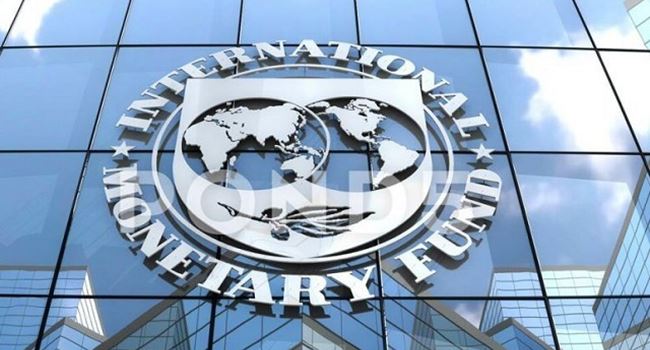Business
IMF revises projection for Nigeria’s economic growth in 2020 to –4.3%

The International Monetary Fund (IMF) has forecasted that the Nigerian economy will slow down by 4.3% this year, reversing it from its earlier projection of -5.4%.
The Washington-based multilateral lender revealed the grim prospect in its flagship World Economic Outlook for October 2020 report issued on Tuesday.
It had said in April Nigeria’s Gross Domestic Product (GDP) would shrink by 3.4% in 2020.
IMF said Africa’s largest economy will find recovery in 2021, putting the economic growth rate for the year at 1.7%.
Global growth is seen decelerating by 4.4% in 2020 relative to the 5.2% anticipated in its outlook released in June.
It noted that the revision demonstrated a stronger than expected performance of second quarter GDP outturns particularly in developed countries, where economic activity started to grow sooner than expected, following the lifting of lockdown curbs in May and June.
“Global growth is projected at 5.2 per cent in 2021, a little lower than in the June 2020 WEO Update, reflecting the more moderate downturn projected for 2020 and consistent with expectations of persistent social distancing.
Read also: Africa needs $1.2tn’ to recover from covid-19 losses –IMF
“Following the contraction in 2020 and recovery in 2021, the level of global GDP in 2021 is expected to be a modest 0.6 per cent above that of 2019.
“The growth projections imply wide negative output gaps and elevated unemployment rates this year and in 2021 across both advanced and emerging market economies.
“After the rebound in 2021, global growth is expected to gradually slow to about 3.5 per cent into the medium term.”
The Fund disclosed that rapid response by central banks had tempered the weight of the pandemic damage to economic activity caused by lockdowns, and warned against the untimely removal of support measures.
“The considerable global fiscal support of close to $12tn and the extensive rate cuts, liquidity injections, and asset purchases by central banks helped save lives and livelihoods and prevented a financial catastrophe,” said Gita Gopinath, the IMF’s economic counsellor.
Join the conversation
Support Ripples Nigeria, hold up solutions journalism
Balanced, fearless journalism driven by data comes at huge financial costs.
As a media platform, we hold leadership accountable and will not trade the right to press freedom and free speech for a piece of cake.
If you like what we do, and are ready to uphold solutions journalism, kindly donate to the Ripples Nigeria cause.
Your support would help to ensure that citizens and institutions continue to have free access to credible and reliable information for societal development.
























